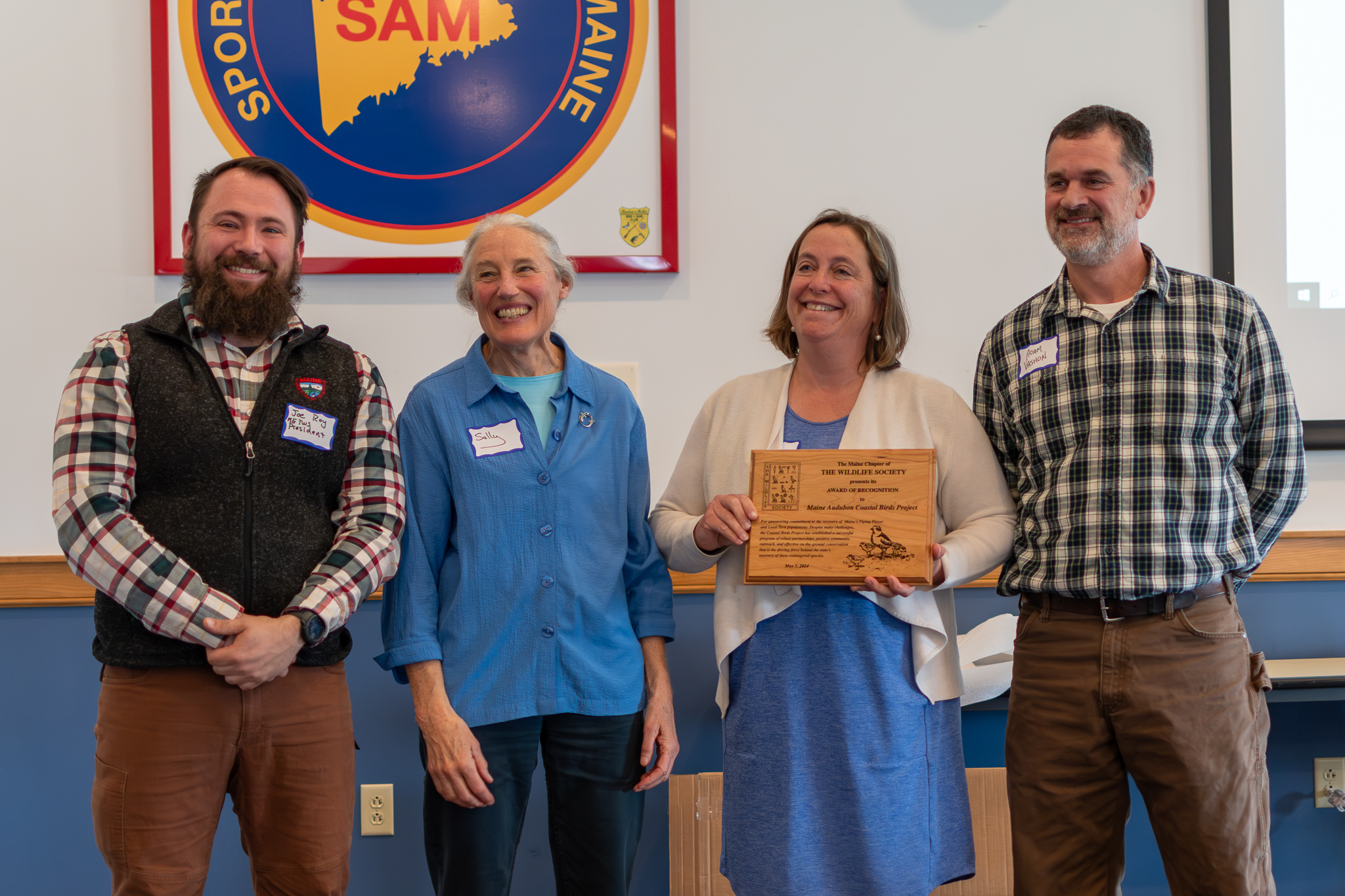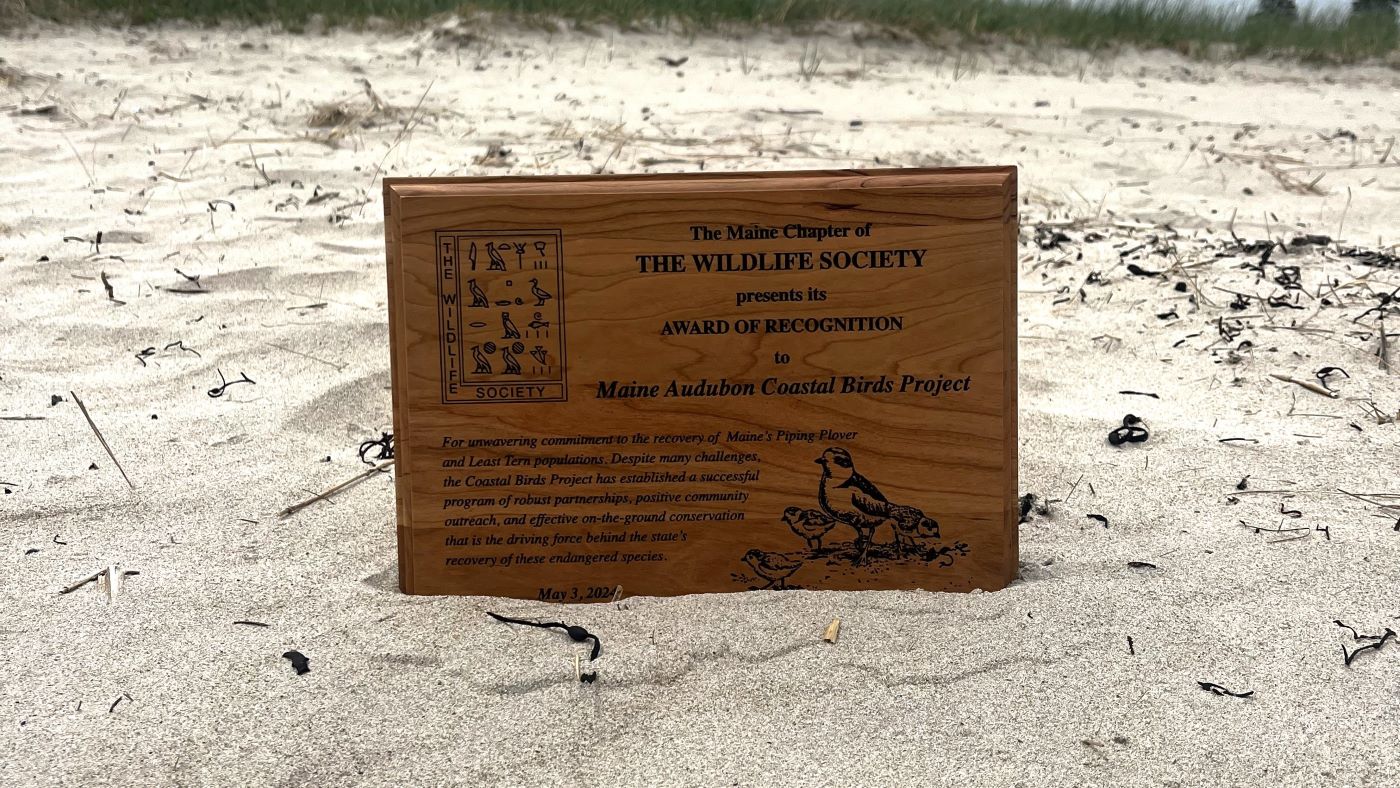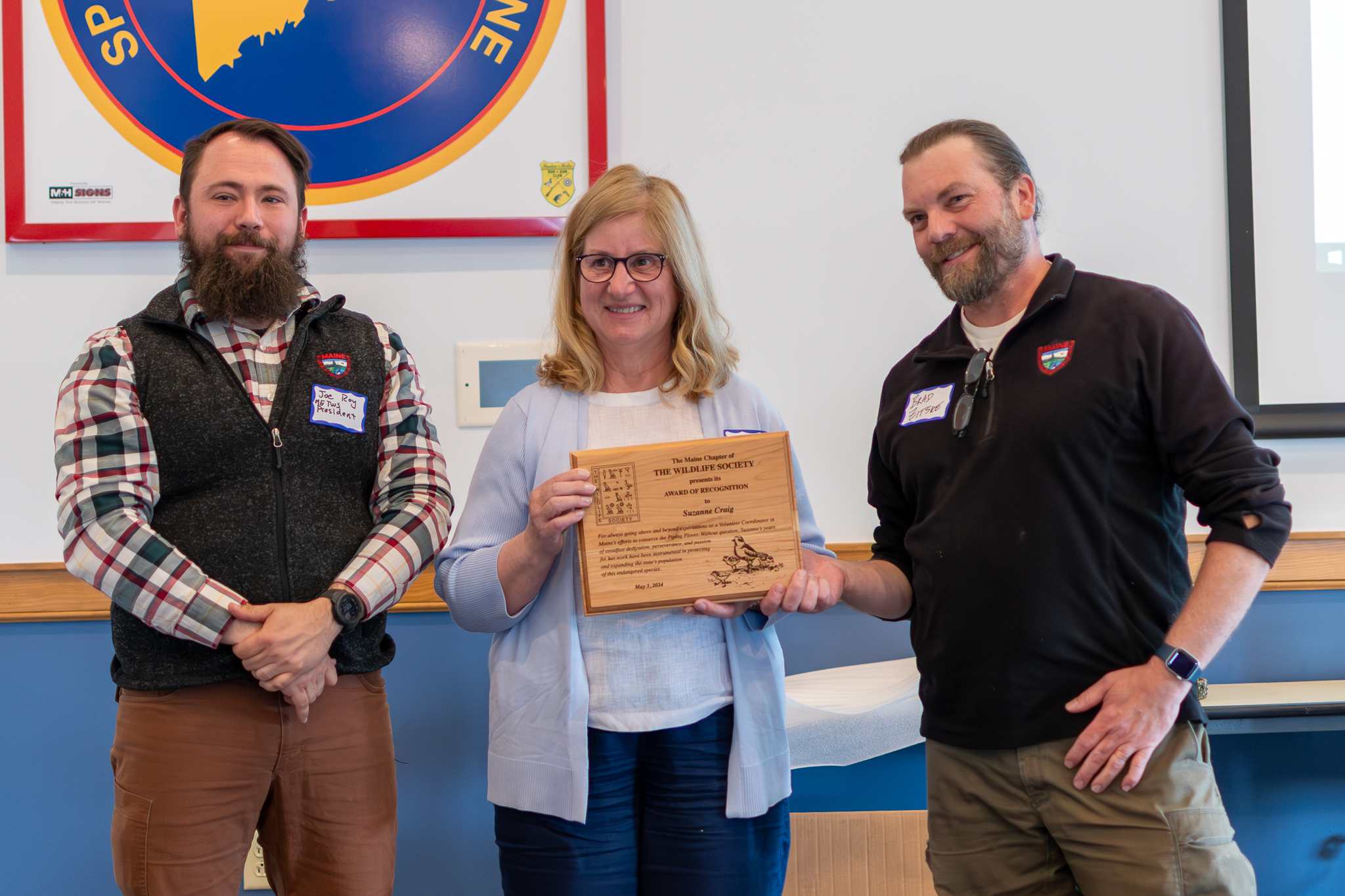
Maine Audubon is pleased to announce that Maine Audubon’s Coastal Birds Project has received the Maine Chapter of The Wildlife Society’s 2024 Award of Recognition.
 This award recognizes individuals, groups, organizations, businesses, or industries in Maine who have made noteworthy contributions to wildlife management or conservation, or to education of the public about wildlife. The Coastal Birds Project is being recognized for its long-standing activities to coordinate and implement Piping Plover and Least Tern conservation efforts in Maine.
This award recognizes individuals, groups, organizations, businesses, or industries in Maine who have made noteworthy contributions to wildlife management or conservation, or to education of the public about wildlife. The Coastal Birds Project is being recognized for its long-standing activities to coordinate and implement Piping Plover and Least Tern conservation efforts in Maine.
The award was presented at the Maine Chapter of The Wildlife Society’s Annual Meeting on May 3. Coastal Birds Project Director Laura Zitske, who has been the director since 2011, received the award. “I’m honored to accept this on behalf of the countless people who have helped play a role in the success of this project, many of whom were in the room at the Annual meeting.” Highlighting the collaborative nature of our work, also receiving an award was Suzanne Craig, volunteer coordinator for the Towns of Wells and Ogunquit. Suzanne and Laura both spoke to the immense number of people involved to help protect our vulnerable beach-nesting birds.
“It’s wonderful to see Laura recognized by her professional peers for the outstanding leadership role she has played to increase the number of endangered piping plovers from 33 nesting pairs and 70 fledglings in 2011 to 157 pairs and 201 fledglings in 2023”, noted Sally Stockwell, Director of Conservation at Maine Audubon. During this time, Laura has worked closely with numerous partners to recover the birds, including actively managing their nest and chick-rearing sites, and sharing news about the ecology and conservation of the birds through various media outlets and outreach activities. Laura has also worked with law enforcement to remind town officials and beach residents and visitors about behaviors they can adopt to help protect these endangered species.
Since 1981, Maine Audubon, in partnership with Maine Department of Inland Fisheries and Wildlife and United States Fish and Wildlife Service, has been monitoring and protecting nesting sites for Piping Plovers and Least Terns in Maine. From the time plovers arrive in mid-March until they migrate south in the fall, biologists are on the beaches protecting nesting sites, educating the public, and tracking the population. The plover population has grown from a mere 10 nesting pairs in 1981 at 6 beaches to a whopping 157 pairs at 27 beaches in 2023.
The Wildlife Society is an international network whose mission is to inspire, empower, and enable wildlife professionals to sustain wildlife populations and habitats through science-based management and conservation.

